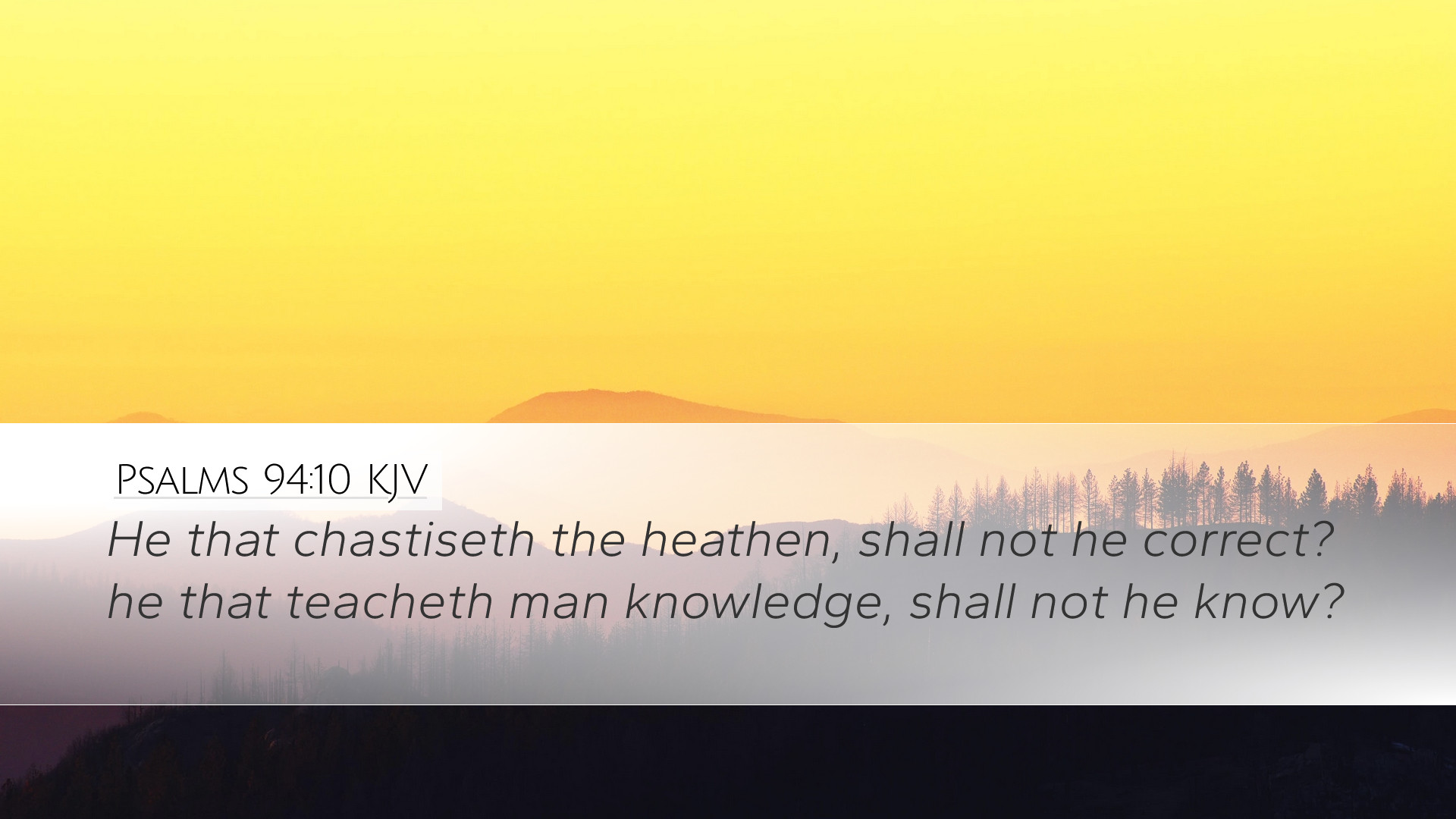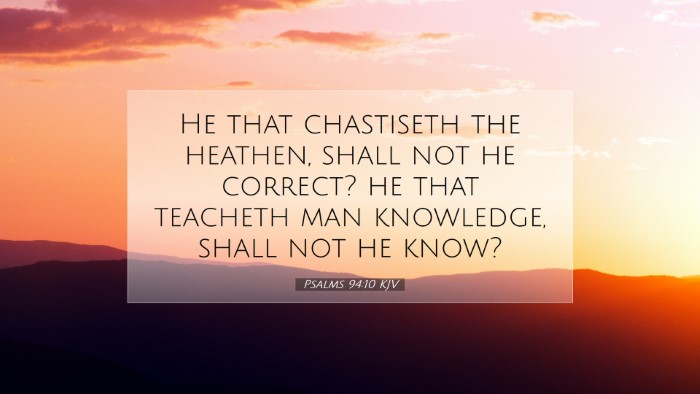Psalms 94:10 - Commentary
Bible Verse: "He that chastiseth the heathen, shall not he correct? he that teacheth man knowledge, shall not he know?" (Psalm 94:10 KJV)
This verse serves as a profound reminder of God's sovereignty and wisdom in the administration of justice and education among humanity. The author of this psalm is addressing the reality of God as the ultimate authority who not only creates and observes but also actively corrects and instructs His creation.
Contextual Introduction
Psalms 94 falls into the category of communal lament, where the psalmist reflects on the oppressions faced by the faithful and pleads for divine justice. In this context, verse 10 serves as a rhetorical question that emphasizes God's omniscience and omnipotence.
Commentary Insights
Matthew Henry's Commentary
Matthew Henry observes that God is portrayed here as the divine teacher and corrector of the nations. The rhetorical nature of the verse highlights that God, who corrects the world through trials and teaches humans through life experiences, undoubtedly is aware of their injustices and wrongdoings. Henry emphasizes that chastisement is not merely punitive but serves a corrective purpose, leading individuals and nations towards righteousness.
Albert Barnes' Notes
Albert Barnes adds that the questions posed in this verse are aimed at asserting God's authority over those who challenge Him—specifically, the 'heathen,' or the ungodly nations. He notes that God’s ability to teach knowledge implies His omniscience and that He possesses complete understanding and insight into human affairs. This assertion serves to comfort the oppressed, reminding them that God is fully aware of their struggles and is just in His judgments.
Adam Clarke's Commentary
Adam Clarke remarks upon the phrase "he that chastiseth the heathen." Clarke interprets this as God’s role as the ultimate judge who administers discipline not only out of wrath but also out of a desire for correction and improvement. This interpretation flows into the concept of teaching knowledge, where Clarke posits that knowledge imparted by God is necessary for moral and ethical living. He underscores the importance of divine revelation, urging readers to seek understanding through their relationship with God.
Theological Significance
- Divine Sovereignty: This verse affirms God's active engagement in the world and His responsibility for justice among nations.
- Human Accountability: The verse calls humanity to recognize that divine correction is a necessary part of life, and failure to heed such correction carries significant consequences.
- Corrective Purpose of Trials: God's chastening is shown to have a transformative purpose, aligning individuals with His will.
- God's Omniscience: The knowledge of God encompasses not just His understanding of phenomena but also His insight into human intentions, desires, and actions.
Practical Applications
This passage invites several applications in personal and communal faith contexts:
- Encouragement during Trials: Believers are encouraged to view their trials as opportunities for growth and divine instruction.
- Awareness of Divine Justice: This verse serves as a reminder that God sees and understands all injustices within society, urging pastors and leaders to foster hope among those who feel oppressed.
- Seek Knowledge from God: The teaching aspect incites believers to pursue godly knowledge, recognizing that true wisdom aligns with God’s will.
- Call to Repentance: The acknowledgment of God's correction prompts an individual and collective review of moral and ethical standards within communities.
Conclusion
Psalms 94:10 offers a deep well of insights for those involved in ministry, education, and theological study. As we navigate through life’s challenges and uncertainties, understanding God’s role as the chastiser and teacher invites profound reflection on how we respond to His divine correction. In doing so, we not only align ourselves with His intention for our lives but also embody an example of faithfulness to those around us.


